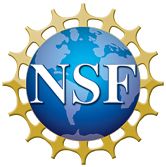Mau & Porporato, 2016
Optimal control solutions to sodic soil reclamation
Mau, Y. and A. Porporato (2016)
Advances in Water Resources 91: 37-45
-
Calhoun, INVESTIGATOR
Abstract
We study the reclamation process of a sodic soil by irrigation with water amended with calcium cations. In order to explore the entire range of time-dependent strategies, this task is framed as an optimal control problem, where the amendment rate is the control and the total rehabilitation time is the quantity to be minimized. We use a minimalist model of vertically averaged soil salinity and sodicity, in which the main feedback controlling the dynamics is the nonlinear coupling of soil water and exchange complex, given by the Gapon equation. We show that the optimal solution is a bang–bang control strategy, where the amendment rate is discontinuously switched along the process from a maximum value to zero. The solution enables a reduction in remediation time of about 50%, compared with the continuous use of good-quality irrigation water. Because of its general structure, the bang–bang solution is also shown to work for the reclamation of other soil conditions, such as saline–sodic soils. The novelty in our modeling approach is the capability of searching the entire “strategy space” for optimal time-dependent protocols. The optimal solutions found for the minimalist model can be then fine-tuned by experiments and numerical simulations, applicable to realistic conditions that include spatial variability and heterogeneities.
Citation
Mau, Y. and A. Porporato (2016): Optimal control solutions to sodic soil reclamation. Advances in Water Resources 91: 37-45. DOI: 10.1016/j.advwatres.2016.02.014
 This Paper/Book acknowledges NSF CZO grant support.
This Paper/Book acknowledges NSF CZO grant support.
Explore Further

